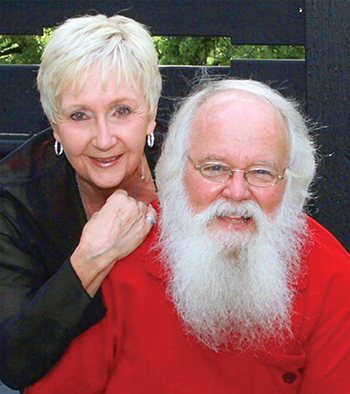A Caregiver's Perspective
Caregiving Insight from Patti Peterson

My husband, Jerry, and I have always led very independent lives when it comes to the practical parts of our 51-year marriage, including our doctor’s appointments. His prostate cancer treatment was no different.
I, along with my daughter-in-law, encouraged him to get a second opinion. We came together when we needed to, but I also ensured he had the independence to make his own decisions. After all, it is his body. He went to most of his appointments and treatments by himself. Granted, if he had needed me with him, I would have been there in a heartbeat.
He became involved with the Prostate Network, a support group for men with prostate cancer, right from the beginning. It was a good fit for him because he has always been very comfortable talking to people. And though I was happy he was getting a lot out of the meetings, I wanted to be more involved. Every time he came home from one, I’d ask, “What is there for me?”
I actually had to point out that this diagnosis affected the whole family, not just him. But like many men, the diagnosis hit him hard and he felt like he was in it alone. He admitted it was an awakening for him, and he realized he needed to include me. He talked with the group organizer, and a new meeting was set up for partners.
As a former therapist who worked a great deal with the LGBTQ community, I realize how important it is to feel like you’re included in something your partner is going through. We encourage men to bring their loved one, whether that be a partner, wife or husband. This group is a wonderful resource and so necessary. Being involved in the group is a gentle reminder about how grateful I am that we have had a relatively smooth experience. We are all going through this together, and we all need support.
Everyone’s situation is unique, and how I approach the role of caregiver works for us. However, some things can apply across the board, so here is my advice:
- Do your research to learn about the type of cancer and the different treatments that are available.
- Explore the benefits of good nutrition.
- Be available for attending appointments and treatments.
- Communicate in whatever way works for the two of you.
- Take care of yourself by practicing self-care. You don’t have to be strong to be strong. Sometimes falling apart helps us re-group and develop new coping skills.


